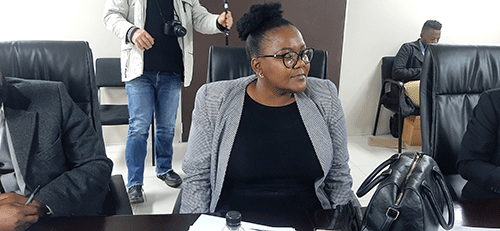SWAKOPMUND – Hostile witnesses and the lack of collaboration or slow response for information crucial to cases from various entities remain a challenge for the Anti-Corruption Commission.
According to the anti-graft agency, such delays hamper the speedy finalisation of cases currently investigated in the Erongo region.
The ACC investigator Felisitas Kavara-Nghwada highlighted this during a media briefing held yesterday in Swakopmund.
According to her, they have 315 cases registered to date in the Erongo region, of which 74 are active cases. Some of these cases date back to 2012. At least 10 of the cases are waiting for the prosecutor general’s decision.
“We have also recorded two successful convictions and concluded 16 investigations and concluded four cases,” she explained.
She then highlighted that some of the convictions include that of a Pakistani national who was convicted this year after he tried to bribe a prosecutor in Swakopmund in 2020.
Two immigration officials were also fined for endorsing work permits of eight South Africans, while a Walvis Bay municipal employee was also fined for fraud.
According to her, the current fraud cases involve procurement, fuel card fraud, land sales, recruitment and traffic-offence related.
“However, we have challenges with hostile witnesses. They simply stop cooperating and this hampers the progress of some of our cases. We also experienced delays in trials, but that is out of our hands as that part is being dealt with by the judicial system. Covid-19 also played a critical role and delayed some of our cases,” she said.
Also speaking at the occasion, deputy director general of the ACC Erna van der Merwe said ACC is still committed to fighting corruption amidst the difficulties it faces.
“We should remain conscious of corruption and its impact on national security and development,” she said.
She applauded the media for playing a significant role in the fight against corruption, saying that investigative bodies such as ACC would have difficulty unravelling corruption without the media.
“The media is the link between the citizens and public institutions, as it is the platform through which Namibians can demand accountability and transparency,” Van der Merwe said.
– edeklerk@nepc.com.na


